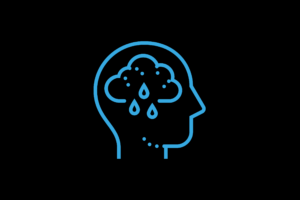When you read information from adult autistic people, they often only talk about all the positives of autism – and there is a reason for that… They are so used to discrimination and stigma that they want to put an end to false beliefs.
For a very long while, the medical profession has been telling the world that autism is a disorder. All the statements used to identify and diagnose an autistic are written in a negative way as though they are describing bad things. A lot of us autistic adults have experienced times when others have justified not being friends with us, being unkind to us or not employing us based on all those negatives.
Being autistic is just like any other brain type – it has good bits and it has bad bits, but to persuade the outside world that we shouldn’t be bullied and shut out, many autistic adults try to educate about the good stuff only. Then this creates another false belief as it can end up going the other way with the majority thinking that autism is some kind of superpower. TV dramas often show autistic superbrain characters – like we are the creative geniuses that changed the world – without us, the human race would still be in caves banging rocks!
Because of this stereotype, you can start to think you aren’t just a failed neurotypical, but you’re a rubbish autistic person too.
If we only talk about the positives, then it’s easy to believe that we’re the only autistic person in the world who is struggling. It can seem like everyone else has got it figured out and we are the one useless autistic in the pack. We can then feel just as alone and lost as we were before we knew we were autistic.
The truth is that autistic people struggle with quite a few things – and if we recognise those struggles – then we can do something about it. Instead of people thinking we just aren’t trying, we can make sure the barriers we are dealing with are seen and sorted.
When we acknowledge our struggles, we can figure out workarounds and ideas for support so that difficulties don’t stop us getting to where we want to go.
Think of it like being physically disabled; you might need a wheelchair and ramps and lifts, but you wouldn’t like it if people just rolled their eyes at you and went:
‘Use your legs like everyone else. I don’t get why you aren’t even bothering to try.’
You’d feel really awful if people reacted like this – not just frustrated that you’re stuck and that no one is helping or even trying to understand why you’re stuck, but angry at yourself for NOT having legs that work like everyone else.
Being autistic can feel like that a lot of the time.
- We can struggle to figure out what’s going on in social situations.
- We can struggle with executive function – not knowing how to do something that others seem to find easy, like tidying a room.
- We can struggle with processing information – missing out on what’s going on around us or getting overwhelmed.
- Our senses don’t work the same way as everyone else’s which can cause problems.
Even everyday things like going to a supermarket or a cafe can be impossible to do because they can be too overwhelming.
Being autistic often isn’t easy but you are not alone – just about every autistic person struggles with these things. The good news is that these things don’t have to take over your life and stop you finding out where your strengths are, or doing what you love and want to do.
Because you are not the only autistic to have ever struggled, there are already a lot of support and workaround ideas out there. Things us adults had to figure out by ourselves to get by, and things we are now passing on so others don’t have to struggle in the same way we did when we were younger.
It’s OK to be angry at the bits that don’t work for us – it’s annoying and frustrating. But if we spend our time only being angry at what we can’t do – we risk losing the chance to find out what we can do.



